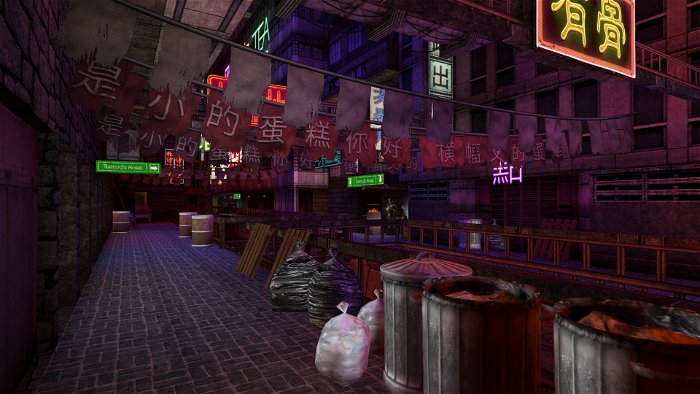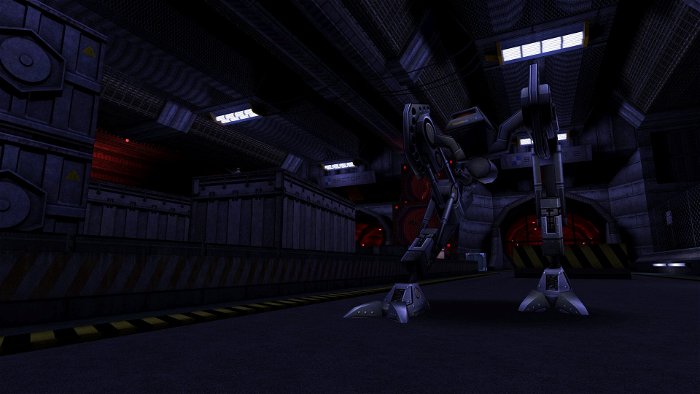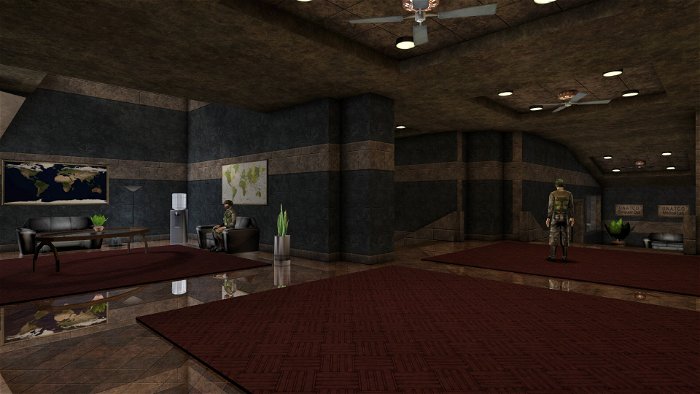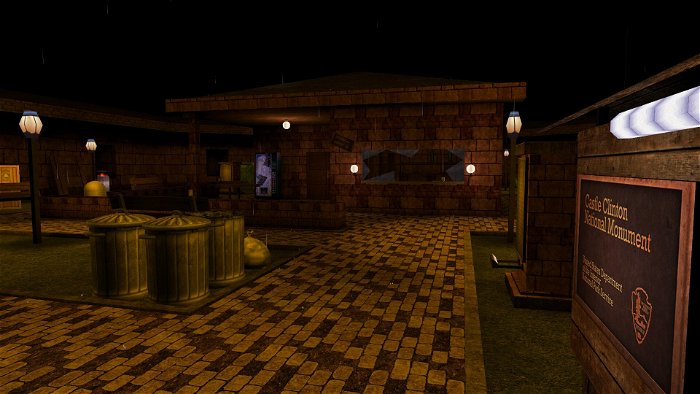Recently we saw the official release of Deus Ex: Revision on Steam. It’s a mod for Deus Ex that brings together many fan-made update patches, new textures, lighting renderers, and more. It’s receiving its fair share of attention at the moment, and it’s certainly well-deserved, but it got me thinking about the double-edged sword that is community-based restoration projects for classic games. In short, do fan-made updates for classic titles accurately preserve the experience of the originals?
Now, obviously, this is going to change slightly on a case-by-case basis, as projects like DarkPlaces, Epsilon, and Quake Definitive for the original Quake seek only to update a game’s visuals, allowing for modern rendering, resolutions, shading, and lighting to be injected. Some may also reintroduce features that have been removed from re-releases on Steam or GoG, or allow for a game to be run without a DoS emulator, as well. But many other projects—such as the long-running System Shock 2 community patch that was pushed as an official update for the 16-year-old game on Steam a couple months back—work to remedy bugs or tweak features that may feel out-of-balance with the game as a whole. Others still, take more liberties, offering entirely new campaigns and experiences, but overhaul mods aren’t the focus here.

Deus Ex was my first true love in gaming. I still remember that fateful day back in the late summer of 2000 when my friend Joey and I saw it on the rental shelf at my local movie place (it was a strange time back then, when PC game rental was sort of a thing). We were 14 at the time, and that iconic cover art evoked a Pavlovian response to our young gamer minds. It just looked cool. It was cool. Sparing the details, after playing, Joey wasn’t sold on the RPG-style underpinnings, but me? I was hooked. In the first two years (again, weird time; games were built to last back then), I blew through the game at least a dozen times—there really is that much replayability. Over the years, though, and after losing my original copy in a series of moves, it slipped into the realm of nostalgia. That is, until I found an in-box version of the GOTY edition back in 2006. Rushing it home, I couldn’t wait to install it and reacquaint myself with an old friend.
This was the first time I vividly remember a newer version altering the feel of a game. It wasn’t much, but subtle things like item placement were different (thanks to the included 1.112fm patch). Years of muscle memory were being deceived by these new updates, and it’s with this mindset that I question Deus Ex: Revision. Having spent the night playing it, I can’t help but wonder if 14-year-old Jake would have the same lasting impression of the game if he were to experience this iteration with better balance, fewer quirky bugs, and (admittedly more immersive) altered enemy placement and level design. None of the changes feel game-breaking, but perhaps my memory of the game is so cemented that nothing could change it at this point. Without a doubt, its updated lighting and textures, as well as enhanced level design, are beautiful, immersive, and lovingly crafted by true fans of the game, but do they accurately preserve the experience for someone who might see this an ideal opportunity for a first-time delve?
Sure, the story remains perfectly intact, but does a fifteen-year-old game that’s been updated for modern sensibilities still have the same punch as the original? I can’t help but be reminded of the removal (fixing) of the strafe-jumping bug in early patches for Quake. Sure, it was never supposed to be present in the first place, but it became a defining feature of the game—one that we see imitated in many games since, even today. This was an engine-level bug that had to be patched back in because Quake just didn’t feel like Quake without it.
I may never know if a community-made update to such an iconic bastion of game design and storytelling will detract from a first-time experience any more than my 70-year-old father can be sure that my 40-year-old brother didn’t have the same profound experience at Woodstock ’99 that he had at Woodstock ’69, but what I can say, having spent a whole night with it, is that Deus Ex: Revision certainly didn’t spoil my memories of the original. While it was jarring at times to find things not where I left them, figuring out how to overcome new challenges (even when they’re in the same old maps) was an exhilarating experience. Certainly, Revision is a great experience for vintage fans of Deus Ex, and it’s without a doubt the most accessible version of the game for first-timers, to boot.

If you’ve never experienced the original 2000 masterpiece, I can’t recommend it highly enough. Its themes may be mirrored in many newer titles but, without a doubt, this was genesis; the first game to draw on these themes in such a way. And now, though it may not be a perfect 1:1, there’s a whole new way to experience it for old and new fans alike. While part of me always worries about spoiling the original artistic vision when dealing with community-based updates, if there’s even a chance that this facelift allows new younger gamers to have their eyes and imaginations opened to the possibilities of videogames, it’s a risk I’m willing to accept.
Deus Ex is currently on sale for $1.55CAD over on Steam. Owners can find the Revision mod page right here.






